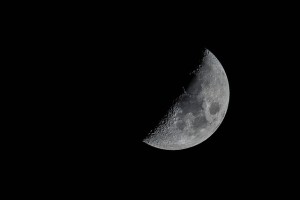- Calls to this hotline are currently being directed to Within Health or Eating Disorder Solutions
- Representatives are standing by 24/7 to help answer your questions
- All calls are confidential and HIPAA compliant
- There is no obligation or cost to call
- Eating Disorder Hope does not receive any commissions or fees dependent upon which provider you select
- Additional treatment providers are located on our directory or samhsa.gov
Night Eating Syndrome: Signs and Symptoms

Night Eating Syndrome (NES) is a somewhat rare but debilitating illness characterized by eating the vast majority of calories in the late evening or throughout the night.
Since the disorder was first described in the 1950s by Albert Stunkard, a psychiatrist at the University of Pennsylvania, NES hasn’t been clinically studied, but its estimated that about 1.5% of the general population has NES, and presents in more than 25% in samples of severely obese people, according to a paper published in the Journal of the American Medical Association (JAMA). [1]
People with NES eat much of their daily caloric intake in the late evening and early morning hours; and according to the aforementioned paper, night eaters consumed 56% of their food between 8 pm and 6 am compared to 15% the control group ate during the same frame.
Other Specified Feeding or Eating Disorder – Night Eating Syndrome
Night Eating Syndrome is included in the Diagnostic and Statistical Manual of Mental Disorders (DSM-5) and classified under Other Specified Feeding or Eating Disorder (OSFED). It is defined as “recurrent episodes of night eating; eating after awakening from sleep, or by excessive food consumption after the evening meal.”

Night Eating Syndrome can also be confused with eating when someone is sleepwalking, which is called nocturnal sleep-related eating disorder, or after taking sleep-aid medication, as we’ve heard is a side effect of Ambien. People with NES are aware they’re eating and remember doing so the next day, at which time they may even feel ashamed.
Still, NES is mostly considered a form of self-medication because night eaters eat to battle insomnia and the late-night snacking usually involves carbohydrate-rich “comfort” foods. [3] Like binge-eating disorder, night-eating syndrome presents a fierce urge that many people simply can’t resist.
The theory that Night Eating Syndrome is self-medication may one day help us better understand why people with NES are more vulnerable to depression and addiction problems. NES is also associated with lower self-esteem and reduced daytime hunger. [4]
People develop NES for various reasons. It could be a habit developed from many late-night or all-night work sessions that involved food. NES may also be the result of skipped or reduced meals during the day – for dieting or work purposes – that lead to nighttime overcompensation of missed calories.
Response to Stress

Night eating can affect someone’s self-esteem and ability to develop and/or maintain healthy work and social lives. Treatment usually includes education about the disorder along with nutritional and behavioral therapy.
Here are some common symptoms to help identify the disorder in yourself or others:
- Eat more than half of daily food intake during and after dinner but before breakfast.
- Wake up three or more times a week to eat.
- Eat mostly carbohydrates: sugar and starch.
- Follow this eating pattern for at least two months.
- Believe that eating will help you sleep better.
- Don’t eat very much or feel hungry in the morning.
- Remember that you woke up and ate.
- May feel shame about it.
- Are overweight or obese.
- Have failed frequently at dieting.
- Experience unusually high concern about weight and body shape.
- Feel tense, anxious, upset, and/or guilty while eating.

References:
[1]: 1. Birketvedt, G., Florholmen, J., Sundsfjord, J., et al. (1999). Behavioral and neuroendocrine characteristics of the night-eating syndrome. Journal of the American Medical Association, 282(7), 657-66.[2]: O’Brien Root, K., & Miller, K. (n.d.). Is It Binge Eating Disorder or Night Eating Syndrome? Retrieved January 14, 2016.
[3]: Michael Craig, M. (2013, September 13). Nighttime overeating can throw weight and health out of sync – Harvard Health Blog. Retrieved January 14, 2016.
[4]: Gluck, M. E., Geliebter, A. and Satov, T. (2001), Night eating syndrome is associated with depression, low self-esteem, reduced daytime hunger, and sess weight loss in obese o Obesity Research, 9, 264-267.
The opinions and views of our guest contributors are shared to provide a broad perspective of eating disorders. These are not necessarily the views of Eating Disorder Hope, but an effort to offer discussion of various issues by different concerned individuals.
We at Eating Disorder Hope understand that eating disorders result from a combination of environmental and genetic factors. If you or a loved one are suffering from an eating disorder, please know that there is hope for you, and seek immediate professional help.
Last Updated & Reviewed By: Jacquelyn Ekern, MS, LPC on April 12, 2016
Published on EatingDisorderHope.com
